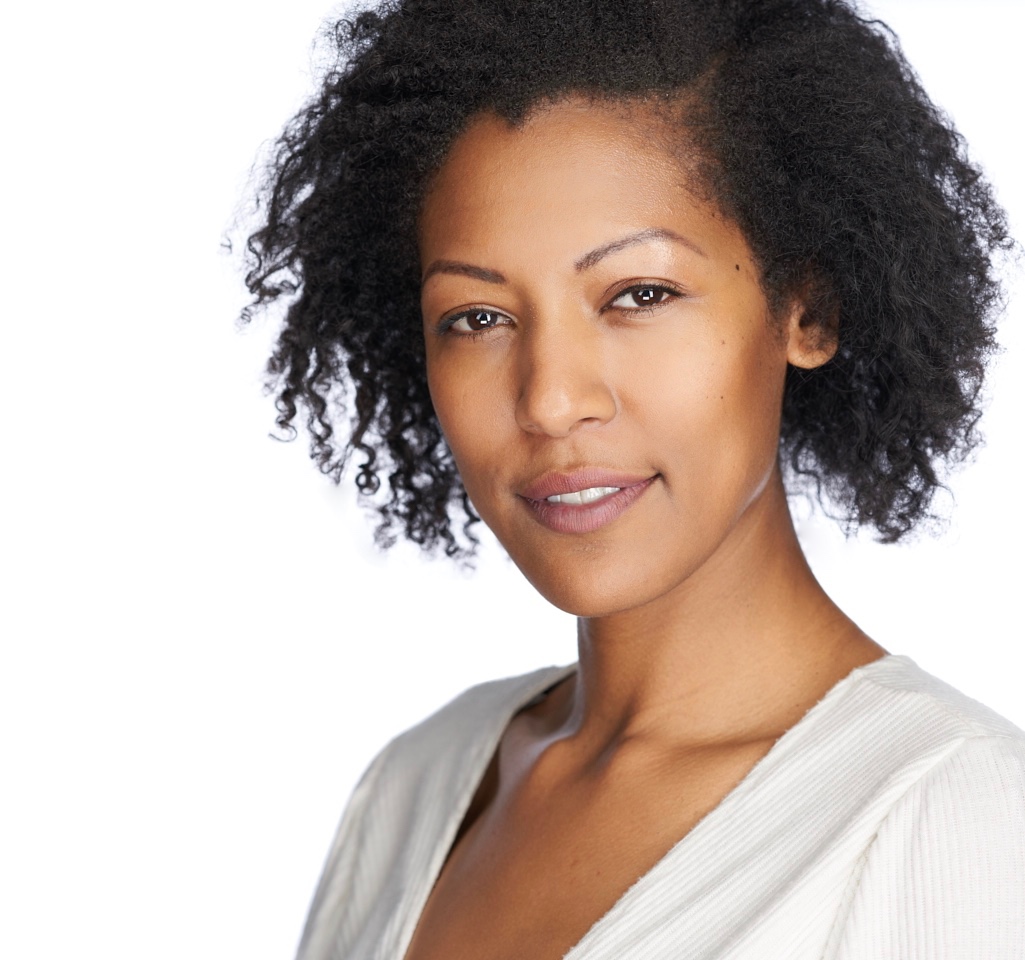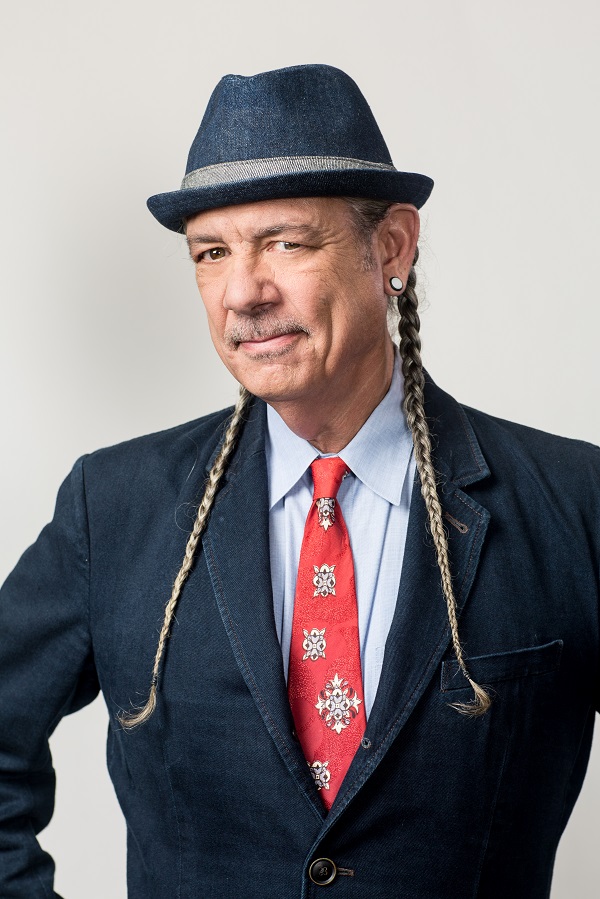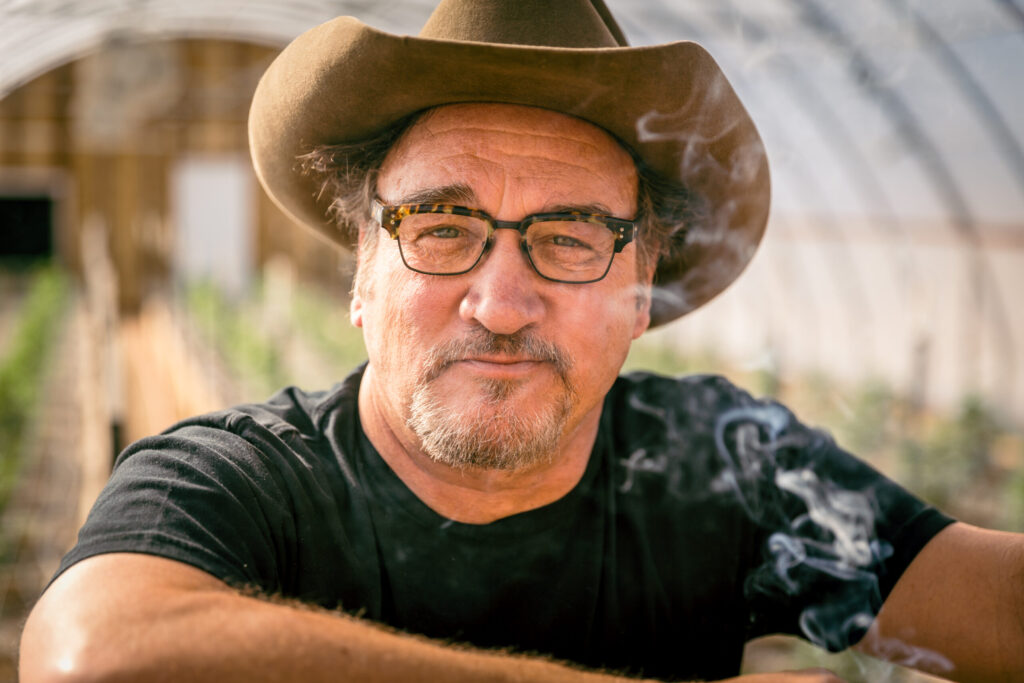This article by Taylor Mclamb was originally published on Cannabis & Tech Today, and appears here with permission.
At our recent Emerge Virtual Cannabis Conference & Expo, transformative thinkers and innovators voiced their insight on diversity, expungement, and prison reform to hundreds of eager virtual attendees.
The event hosted several prominent speakers from the industry, boasting a powerhouse assembly of cannabis enthusiasts.
Hemp and cannabis culture is all about community; it’s a space where everyone deserves representation.
As the demand for cannabis continues to grow, many revolutionary leaders within the industry, including Andrew DeAngelo, Wanda James, Steve DeAngelo, and others have been fighting for change within the hemp space to better reflect the inclusive nature of the plant.
Wanda James

Wanda James. Photo courtesy of Wanda James.
James is the CEO of Simply Pure and the first African American woman to own a dispensary in Colorado.
On why James transitioned from working in politics with President Obama to becoming a successful cannabis entrepreneur:
“When I met my brother and I discovered the grave injustice that was done to him, 10 years with a prison sentence, four years picking cotton, to buy his freedom for having possessed less than four ounces of weed.
That to me, was an American failure on a grand scale when I found out that it wasn’t just my brother, but 800,000 people a year.
And when you find out those kinds of statistics and it hits your family, then that political policy becomes very personal to you.”
“I’m tough as nails. So whatever you throw at me, we can do it, thank you military.
I understand business, thank you Fortune 50 companies for giving me outstanding business training.
And politics, thank you for giving me the passion to be able to fight for policies that change people’s lives and that hopefully, no other 17-year-old black boy ever has to pick 100 pounds of cotton a day to purchase his freedom in America.”
James reflected on her time serving on a transition team for Governor Polis, where she looked at over 300 resumes of highly-qualified men and women who all wanted to work for the governor’s cabinet.
While conducting interviews for the position, she came across a fascinating discovery:
“Men do a really great job of building themselves up to be there for the competition. And then you have this amazing woman that has a Ph.D. and has solved all types of civil engineering issues, has built bridges all over the world. And yet, she puts something very small in her resume, like, ‘I had
70 projects,’ instead of all of that which she does…we have got to stop being humble and we
have got to want to brag about ourselves and what we do…
“I just want women to really feel comfortable in discussing what it is that they do, because I promise you ladies, the competition, the men on the other side have listed everything that they have ever done.
Every committee that they’ve ever sat on, every idea that they’ve ever had, it’s in their resume.”
Towards the end of her session, James offered some memorable advice to women entrepreneurs:
“Don’t be fearful, always be cautious, look at all the things around you, but don’t let fear be the reason why you don’t grab the brass ring.
If there is something that you believe you can do, and there’s something you believe you want to do, it is imperative you take that step and you do it…
“Figure out what you’ve got to do, one step at a time. The journey of a thousand miles starts with one step. So take that one step. It will lead you to the next step that leads you to your next step. And then 10 years from now, you’ll be sitting here at the Emerge Conference, having great conversations with wonderful female entrepreneurs. And that’s what it’s all about at the end of the day.”
Andrew DeAngelo

Andrew DeAngelo. Photo courtesy of Andrew DeAngelo.
Co-Founder of the Last Prisoner Project, DeAngelo also founded cannabis retailer Harborside alongside his brother, Steve DeAngelo.
The Last Prisoner Project is a cannabis criminal justice nonprofit that fights to release incarcerated individuals for cannabis offenses, as well as record relief and expungement.
DeAngelo shared the origin of the Last Prisoner Project and his involvement in activism. He gave credit to his brother, Steve, for the vision of LPP:
“When we opened Harborside, we launched a program where patients could write letters to cannabis prisoners and get free medicine in exchange for that.
We began our connection from the legal industry to our brothers and sisters in prison with that program…
Then about a year and a half ago, Steve was hit with a thunderbolt when he was in a conference room with a lot of high-net-worth individuals talking about starting publicly-traded cannabis companies worth hundreds of millions, if not billions of dollars, basically doing the same thing that all of our friends and family members had gotten busted for previously.
It felt really, profoundly wrong that we had a legal industry where people were selling a lot more cannabis, manufacturing, and distributing [more] than folks who are currently serving hard time in prison.
Steve felt like we needed to do something about that, so that was the inspiration for the Last Prisoner Project.”
After spending decades fighting for cannabis justice, DeAngelo shared how the state of activism has changed for the better and what he’s learned from the newer generation of activists:
“What’s happened in the last couple of years with these activists is, I’ve realized the connection between… how much we have in common and how much my privilege protected me in that same trade, where everybody else did not have that protection. It’s really opened my mind.
“We always had this commitment to freeing our brothers and sisters in prison. It didn’t matter what color your skin is, we always had that commitment.
But, what I’ve learned from these activists is, it’s not enough to have commitment. You have to have law, the power of law behind some of this.
Until it is mandated that we create equity, until it is mandated that we create ownership, our work is not done.
That’s why, not just with LPP, but I donate a certain amount of my time to social equity too, because it’s our obligation, it’s that moral imperative we’ve been talking about.
Just right now, I really feel it in every cell of my being — that moral imperative.”
June Johnson

June Johnson. Photo courtesy of June Johnson.
Johnson is the social media and events manager at Sava, a women-owned cannabis delivery company out of San Francisco.
In the panel, Johnson discussed what steps retailers can take to become a more inclusive environment:
“I think one important thing to realize is typically when you create a business, it’s out of a personal pain point, and I think that’s really important as a foundation of a business.
But, I think how you keep a business successful is you start to think of other people’s pain points and address those in your business needs.
So, much to both of their points, you want to make a space that’s inviting.”
“When I go into a lot of dispensaries it’s all male budtenders and I don’t feel comfortable asking them from a personal preference of what they could recommend for menstrual cramps because typically they can’t answer that.
So it’s really important to be inclusive in the levels of who is behind the counter, who is picking out the products… so that all the products can reach all aspects of your audience and not just a niche demographic.”
Johnson pointed out the historic political climate we’re living in and how initiating a dialogue about minorities in retail is crucial for the cannabis industry, now more than ever:
“I mean, look at everything that’s going on, just from a news standpoint, a historical standpoint. It’s time for change… We talk about having representation, budtenders and stuff like that, and I want to expand beyond just male/female, gender-nonconforming.
We have a lot of ableist structure in our society, so it’s really important to see everyone.
Then how you move the dollar for communities, for minority communities is, you buy their products, you support them.
So not only do we want to see people who look like us in the dispensaries, at the delivery places that we choose to spend our money with, but it’s also important that you’re buying products from minority-owned businesses and giving them that support, and that is a huge, huge change.
That is very important because that’s really what starts to push around the dollar and create support structures for minorities.
It becomes lip service if we say to do all these things but then we don’t actually move money through these communities…
I think also this industry has not only fiduciary responsibility but a moral responsibility to repair the harm from the war on drugs.
Black and brown people literally carved out this entire industry for the most part and are sitting in jail for it, while we have dispensaries that — well, in design, look like Apple stores, and there is an imbalance with that.
So there is very much a need for this industry to repair that, and to inject money, causes, time, getting records expunged, getting people out of jail, and creating opportunities for those who have been in prison for these offenses while the country is now moving forward to a different direction.
So I think that’s really important.”
Steve DeAngelo

Steve DeAngelo. Photo courtesy of Steve DeAngelo.
DeAngelo is co-founder of Harborside, The Last Prisoner Project, Steep Hill Inc. (the first commercial cannabis lab in the country), and Arcview (the first cannabis investment firm).
DeAngelo praises the cannabis community’s ability to adapt to these trying times and the desire to constantly evolve into a more welcoming environment:
“What we’ve seen is an emphasis on equity, on making sure that people who get to participate in the industry come from communities that have been most affected by the war on cannabis, by the war on drugs.
We’ve seen it in efforts like the organization I founded a year ago, Last Prisoner Project, which has a very simple mission of making sure that as we build this industry around the world, that every single cannabis prisoner, no matter where they are, is released.
And they have a chance to come home and rebuild the lives that were stolen from them.
And again, you always have to keep your eye on the ball.
It’s always moving in cannabis. It’s always changing. It’s going to be that way for the rest of our lives.”
“As we have had success, moving legalization across the country and across the world, we have begun to take a look at what kind of industry we are creating and asking ourselves what it’s going to take to not just create a new industry, but to create a new kind of industry that breaks the mold and sets a better example for all other industries to follow.”
When thinking about the future of the cannabis industry, DeAngelo recited a quote from rocker Patti Smith: “I don’t mess much with the past, but I mess plenty with the future.”
DeAngelo stressed that the future of cannabis isn’t too far away and the versatile properties of the hemp plant could help save the world:
“These things are not in the future. These things are here. These technologies are now.
They await only our imaginations, our hands, our will.
And many of you I know have already started that process, started that process of crafting the new world that we all know needs to come.
And as we do that, as we plant more hemp, we sequester fantastic amounts of carbon just by growing cannabis.
And then as we’re sequestering those tons and tons of carbon, we are also remediating the soil that the cannabis is being grown in, sucking it clean of the industrial poisons that have been poured on by the ton loads, by the thousands of ton loads all around the planet.
And as we do these things, we mitigate the climate change that’s threatening to end life as we know it on this planet.”
“And what about the effects of these kinds of changes as more and more people use cannabis around the world as legalization spreads? As patients extend, as creativity is sparked, as the whole planet becomes closer to nature and more open resolving conflicts more peacefully. That’s the kind of future that we can be moving towards.”
Jim Belushi

Jim Belushi. Photo courtesy of Jim Belushi.
Belushi has a new reality show airing on Discovery, Growing Belushi, which dives deep into his thriving cannabis farm.
As an advisor for the Last Prisoner Project, Belushi talked about his gateway into activism, and how advocates like Steve DeAngelo continue to inspire him:
“There are 40,000 people incarcerated for cannabis in the United States alone.
While we’re out here selling it and making TV shows about it, they’re in prison.
Michael Thompson’s in prison in Michigan for three pounds. He was sentenced to 40 to 60 years.
He served 24 years at this point. His family collapsed, destroyed — for three pounds.
And now he’s got COVID[-19], and he’s in the hospital.”
“But Steve [DeAngelo] and Mary [Bailey] and the Last Prisoner Project have made some headway in Michigan.
The State’s Attorney’s office is now on it, and they’re writing a letter to the governor.
Maybe we get Michael out.
But it’s called Last Prisoner Project because Steve said, “We’re not stopping until the last prisoner is released.” And he’s just so inspirational. I find his inspiration as a leader just beautiful.”
Belushi shared an analogy that compared his body to a rowdy apartment building.
When the cannabinoids enter into the endocannabinoid system, they calm the body’s “rowdy tenants” so the rest of the body can relax.
Belushi hopes that his reality show can help end the stigma of cannabis and show it for what it really is – medicine:
“There are regular working people who need medicine.
I mean, I believe that the traumas that are caused in our lifetime aren’t just the veterans who witnessed horrific things.
But it’s the collapse of a family. When a family collapses, it’s trauma.
Families collapse because of alcoholism, death in a family like mine, my brother John.
Tragic deaths, car accidents, sickness, somebody who’s very sick with epilepsy or Alzheimer’s.
Losing a job, which is going on right now. There is trauma going on right now. Losing a home.”
“All these traumas create a screaming inside of us that we try to manage.
And those poor people on the streets of Portland in that homeless district, they lost their management.
They scream out loud on the streets.
And I think if I could just get them an edible, maybe it’ll stop the screaming, and maybe the healing can begin.”
“So I really believe we all are screaming from something.
I’ve had a few traumas in my life, and when anything triggers them, CBD slows it down.
But I believe people reach for alcohol.
I’m not against drinking. Believe me, I have a beer, whiskey once in a while.
But too much alcohol or medicine, it could be Xanax, it could be Ambien.
Those kinds of things just cause so much havoc in the body.
Why not reach for cannabis? It’s gentle. It’s beautiful. It’s generous. It’s healing. It doesn’t leave you hungover. It doesn’t complicate things.”
Read the original Article on Cannabis & Tech Today
Benzinga's Related Links:
- Women's History Month: The Women of Cannabis Advocacy And Legalization
- Why Being An Advocate Matters In The Cannabis Industry | Benzinga
Más de Cannabis & Tech Today en español en El Planteo:
© 2024 Benzinga.com. Benzinga does not provide investment advice. All rights reserved.
Trade confidently with insights and alerts from analyst ratings, free reports and breaking news that affects the stocks you care about.
Cannabis is evolving – don’t get left behind!
Curious about what’s next for the industry and how to leverage California’s unique market?
Join top executives, policymakers, and investors at the Benzinga Cannabis Market Spotlight in Anaheim, CA, at the House of Blues on November 12. Dive deep into the latest strategies, investment trends, and brand insights that are shaping the future of cannabis!
Get your tickets now to secure your spot and avoid last-minute price hikes.